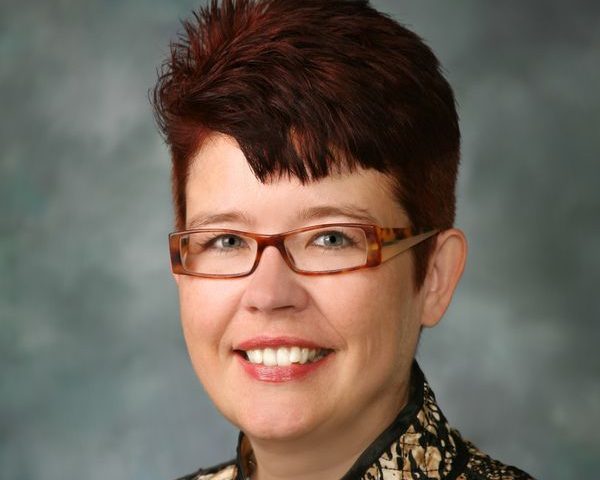
How to embed ethical principles in fundraising
July 18, 2018
Expert View: Are we looking at accepting or refusing donations all wrong?
July 18, 2018Good professional fundraising undoubtedly requires an ethical approach. Fundraising Europe interviews Eva E. Aldrich, President and CEO of CFRE International, about the importance of ethical fundraising, professionalism and the role of the CFRE credential.
[Fundraising Europe] Why is professionalism so important for fundraisers in the future?
[Eva Aldrich] Our vision is for a world where philanthropy is practiced in an environment of trust, respect and accountability. We want to make certain that philanthropy not only survives but thrives and that people really see it as the driving force for good.
A fundraiser’s job isn’t simply about bringing in the money. It’s about helping donors achieve their vision of what the world can be through philanthropy. And that means relationship-building, treating people well and carrying out any fundraising to the best of their ability. It also means that fundraisers must commit to an ongoing high level of professionalism for themselves by continuing to learn and grow as fundraisers.
What do you think ethics really means for fundraisers?
Sometimes people confuse ethics with legalities, when the fact is that ethics go so much further. Ethics is about having a firm sense not only of the law and
The public expect more from charities than any other sector because we are the people who are supposed to be making the world a better place. We can’t just do good practice; we need best practice. We need to show that we’re ethical in all realms and for that we need a clear set of standards and an ethical approach. This means adhering to a high moral code, committing to high standards and being willing to be held to account for our actions. After all, if people don’t trust charities, they aren’t going to give.
Being based in the US, do you see huge differences as to how we approach the fundraising profession in Europe?
There are certainly many different economic and cultural structures at play. According to Giving USA 2018, total giving in the US reached $410 billion in 2017, and many fundraisers there are currently heavily focused on major gifts. In contrast, Fundraising in Europe 2017 shows direct mail and public collections as top fundraising drivers in Europe. And yet, we all share common bonds when it comes to the general approach of building a more philanthropic culture, strengthening the tax incentives and nurturing public trust. We all have the same tool box, but it’s which tools we use and how we apply those tools that differs.
Essentially, we are all working towards the common thread of becoming even better and more professional at what we do. But for this to happen, we need clear standards, guidelines and a genuine commitment to ethics.
What can charities do to integrate ethics into their fundraising practice?
Ethical fundraising isn’t just about having the right policies in place, but helping fundraisers understand what this means for them at a practical level and equipping them with the competencies and information they need to make the right fundraising decisions. There are so many different ways that fundraisers can learn and develop. Working with an organisation that understands the importance of a professional approach and invests in certification, qualifications and training can make a big difference. It also helps to convey the importance of doing the right thing and professional standards.
What is the CFRE and how can it help fundraisers to become more ethical in their approach?
The Certified Fund Raising Executive (CFRE) certification is a global credential that enables fundraisers to demonstrate their commitment to the profession and to learning. Ultimately, it’s about growing high standards of fundraising practice (on behalf of the fundraising organisations for which they work), and equipping them to perform their job with confidence, ethics, and professionalism.
Currently over 6,300 people have the CFRE credential, and nearly 1,100 of those are based outside the US. Fundraising is unique in the sense that we have a fairly unified approach to what is and isn’t acceptable in broad terms, and the CFRE global credential reinforces that with best practices that are acknowledged worldwide.
What do fundraisers need to do to become a CFRE?
Achieving CFRE certification is relatively straight-forward, particularly for fundraisers who have been committed to the sector for some time. It’s a two-step process. First of all, applicants need work as a fundraiser for a minimum of three years, committing to their education (by attending conferences, training or qualifications), and demonstrating performance (through funds raised and/or communications and management projects that directly impact fundraising results). Then, once their application is approved, it’s just a case of completing the CFRE exam.
The exam is a 200-question multiple choice exam that tests a fundraiser’s level of knowledge about best practices in ethical fundraising. This not only assesses what people know at an individual level, but helps to validate the profession. Fundraising practitioners will likely be familiar with many of the content areas of the CFRE exam, as they will be doing it professionally already. Still, techniques and standards are always changing and developing, so fundraisers must re-certify every three years. That way, we can keep CFRE fresh and relevant to all fundraisers, no matter where they are based or where they are in their careers.
Find out more about becoming a CFRE here.
About Eva E. Aldrich
President and CEO of CFRE International, Eva E. Aldrich, PhD and CAE, leads the organisation in delivering the globally-recognised and accredited certification for fundraising professionals. Prior to joining CFRE, Eva was Associate Director of The Fund Raising School at the Indiana University Lilly Family School of Philanthropy. She earned a PhD. in Philanthropic Studies from the Indiana University Lilly Family School of Philanthropy and is a former CFRE (2001-2016).




